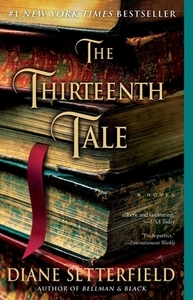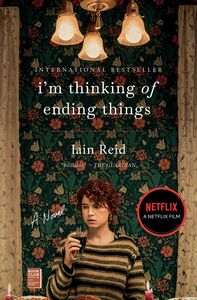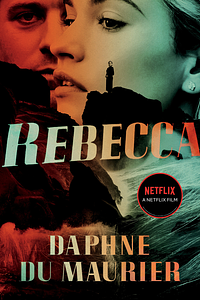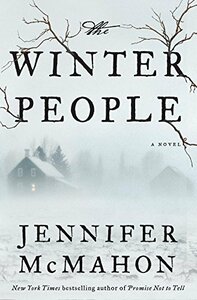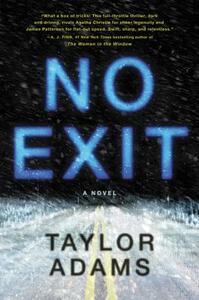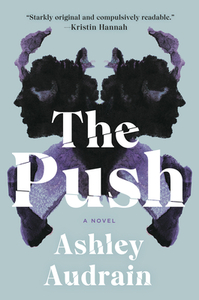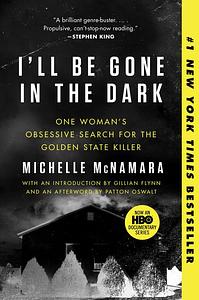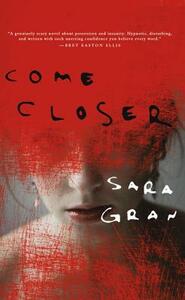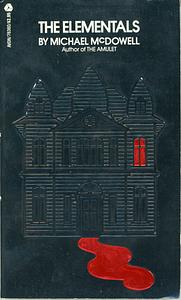You need to sign in or sign up before continuing.
Take a photo of a barcode or cover
dontjudgeabrooke's Reviews (192)
On paper, this should've been a book I really enjoyed. A gloomy wintry atmosphere, gothic elements, a Victorian setting--but something was missing here, and so it comes off more as a cheap imitation of the other, better gothic novels it CONSTANTLY references (does Setterfield know any other books besides Jane Eyre, Wuthering Heights or The Woman in White?). The characters and story are flat and strangely emotionless and I didn't find myself caring about any of them, except for maybe Aurelius. I found many aspects unbelievable but not in a way I think the author intended. None of the anticipated big reveals were particularly shocking, while some seriously dark stuff (incest) was oddly glanced over.
Also, I may be totally out of line here, but I just don't buy thatthe loss of a conjoined twin at birth could cause the kind of enduring trauma Margaret displays, especially if you only found out you had a twin at all several years after the fact .
Overall, I'd rather just read one of the aforementioned classic gothic novels, and it kinda feels like that's what Diane Setterfield wants you to do anyway?
Also, I may be totally out of line here, but I just don't buy that
Overall, I'd rather just read one of the aforementioned classic gothic novels, and it kinda feels like that's what Diane Setterfield wants you to do anyway?
I truly don't know how to start this review. My mind has been spinning since I finished this book ~15 hours ago and I've spent literally all day combing back through it, rereading the final chapter, watching YouTube videos and reading Reddit threads trying to fit every single one of its puzzle pieces into place. There's just SO MUCH to chew on here.
The disparity between my actual reading experience and my post-reading thoughts on this book are baffling and fascinating to me. Tbh, I was fairly bored throughout most of the book and planned on giving it an it-was-fine 3 stars. But here I am giving it 4.5 stars, and I can definitely see myself revisiting this review in the future to bump that up to 5. (That .5 star difference is due almost entirely to the aforementioned boredom, but I think if I were to do a reread that boredom would be greatly lessened or eliminated entirely.) I love when I encounter a piece of media that I respond to in a way I never knew I could respond to something, and the total switcheroo this book pulled with my feelings, from ambivalence to near-obsession, is definitely something I didn't know was possible.
I went into this book having had the ending vaguely spoiled (I knewthere was a janitor involved, he was somehow closely connected to the two main characters and he committed suicide in the end ), and that alone made me skeptical. It sounded like it was in danger of committing the same crime as many of M. Night Shyamalan's films: Creating a twist ending purely for shock value and padding the rest of the plot out with shoddy filler content for no other reason than to have something to lead up to the ending.
For most of the book, it seemed like that fear would be validated. Only after I had finished the very last page did I recognize the brilliant way Reid had crafted this novel. I finally saw that the first ~170 pages weren't shoddy or filler-y at all, but that every piece of information, every philosophical discussion and every rash on a teenage DQ worker's arm served a purpose. I'm sitting here, all these hours later, STILL making connections between these tiny little details scattered throughout the book, and dammit, that's worth something. That's art.
This is gonna be a weird comparison, but it reminds me of what I love so much about Holes by Louis Sachar, another book I consider a perfectly-crafted jigsaw puzzle where every element fits together just so in the most satisfying way that's just *chef's kiss* bellissimo.
And although I can't say I really enjoyed reading the car ride conversations, I can't deny how thought-provoking this book was either. For such a dark book, it's really trying to emphasize (among SEVERAL other things) the importance of human connection, how it enriches our lives and makes them worth living.
At one point, the girlfriend says of a frightening childhood memory, "It’s not heart-stopping or intense or bloodcurdling or graphic or violent. No jump scares. To me, these qualities aren’t usually scary. Something that disorients, that unsettles what’s taken for granted, something that disturbs and disrupts reality—that’s scary." This book (its ending in particular) is unsettling in a way that got into my bones, and I always really appreciate when a story has that kind of power.
Also, this is the first time I've ever seen trichotillomania represented in literature, and I want to thank Iain Reid for that as someone who sometimes had to wear false lashes in high school because I'd pulled out all of my own eyelashes. It's nice to see that condition acknowledged even within the context of a horror novel.
In conclusion, I didn't really love the initial reading process, but after several hours of reflection, I recognize and tip my hat to the way Reid constructed every facet of this story. It's a haunting tale that insinuated itself under my skin without my noticing until I had finished the very last word of the very last page. There have been several books I've really enjoyed in the past that I've forgotten nearly every detail of within a couple years. I have a feeling that won't be the case with this one. Like my all-time favorite books, those that have endured the test of time, I think this will be one I revisit often in my mind.
The disparity between my actual reading experience and my post-reading thoughts on this book are baffling and fascinating to me. Tbh, I was fairly bored throughout most of the book and planned on giving it an it-was-fine 3 stars. But here I am giving it 4.5 stars, and I can definitely see myself revisiting this review in the future to bump that up to 5. (That .5 star difference is due almost entirely to the aforementioned boredom, but I think if I were to do a reread that boredom would be greatly lessened or eliminated entirely.) I love when I encounter a piece of media that I respond to in a way I never knew I could respond to something, and the total switcheroo this book pulled with my feelings, from ambivalence to near-obsession, is definitely something I didn't know was possible.
I went into this book having had the ending vaguely spoiled (I knew
For most of the book, it seemed like that fear would be validated. Only after I had finished the very last page did I recognize the brilliant way Reid had crafted this novel. I finally saw that the first ~170 pages weren't shoddy or filler-y at all, but that every piece of information, every philosophical discussion and every rash on a teenage DQ worker's arm served a purpose. I'm sitting here, all these hours later, STILL making connections between these tiny little details scattered throughout the book, and dammit, that's worth something. That's art.
This is gonna be a weird comparison, but it reminds me of what I love so much about Holes by Louis Sachar, another book I consider a perfectly-crafted jigsaw puzzle where every element fits together just so in the most satisfying way that's just *chef's kiss* bellissimo.
And although I can't say I really enjoyed reading the car ride conversations, I can't deny how thought-provoking this book was either. For such a dark book, it's really trying to emphasize (among SEVERAL other things) the importance of human connection, how it enriches our lives and makes them worth living.
At one point, the girlfriend says of a frightening childhood memory, "It’s not heart-stopping or intense or bloodcurdling or graphic or violent. No jump scares. To me, these qualities aren’t usually scary. Something that disorients, that unsettles what’s taken for granted, something that disturbs and disrupts reality—that’s scary." This book (its ending in particular) is unsettling in a way that got into my bones, and I always really appreciate when a story has that kind of power.
Also, this is the first time I've ever seen trichotillomania represented in literature, and I want to thank Iain Reid for that as someone who sometimes had to wear false lashes in high school because I'd pulled out all of my own eyelashes. It's nice to see that condition acknowledged even within the context of a horror novel.
In conclusion, I didn't really love the initial reading process, but after several hours of reflection, I recognize and tip my hat to the way Reid constructed every facet of this story. It's a haunting tale that insinuated itself under my skin without my noticing until I had finished the very last word of the very last page. There have been several books I've really enjoyed in the past that I've forgotten nearly every detail of within a couple years. I have a feeling that won't be the case with this one. Like my all-time favorite books, those that have endured the test of time, I think this will be one I revisit often in my mind.
I'm not exactly sure why, but this just didn't slap the way I expected it to.
Maybe I would've liked it more if I weren't already very familiar with the story, having seen the stage play and one of the film adaptations. I love the premise of being haunted by a lover's universally-beloved ex and tortured by the constant comparisons, but the plot feels a bit threadbare and I was fairly bored throughout. There were definitely moments where I connected with the protagonist's musings on behavior and societal expectations, and those were probably my favorite parts of the book.
I'm not sure what the takeaway message is meant to be. Are we supposed to be rooting for the main character and her relationship with Maxim? Is it meant to be a critique of the blind eye we often turn to the faults of those we love? Is it a commentary on how much more harshly misbehaving women are punished than misbehaving men? Are we meant to condemn or admire Rebecca? Are we meant to condemn or admire the main character? Is Maxim meant to be viewed as a sympathetic character or as amanipulative murderer ? Is the relationship between Maxim and the protagonist actually meant to read as a romance (because she's absolutely right; Maxim does treat her more like a dog or a child than a wife)? I'm not someone who requires concrete answers in my books; I appreciate ambiguity when it's done well. But in this case, I have no idea what the novel is trying to say and I'm not sure the novel knows either.
I also don't think I'm a big fan of detective novels that are single-mindedly focused on solving a solitary crime, and that's essentially what the last part of the book turns into. I found the ending to be jarringly abrupt and anticlimactic.As someone who knew the ending beforehand, I watched suspiciously as the page count kept dwindling with no mention of the fire. The fire is IMO the most exciting part of the story, and I was shocked to find out that it's confined to the very last paragraph of the book. I'd been imagining all the beautiful prose Du Maurier would use to describe Manderley in flames, but we don't get any of that.
I don't know, I just didn't super jibe with Du Maurier's writing. It's missing something I can't quite put my finger on. Not one of my favorite classics.
Maybe I would've liked it more if I weren't already very familiar with the story, having seen the stage play and one of the film adaptations. I love the premise of being haunted by a lover's universally-beloved ex and tortured by the constant comparisons, but the plot feels a bit threadbare and I was fairly bored throughout. There were definitely moments where I connected with the protagonist's musings on behavior and societal expectations, and those were probably my favorite parts of the book.
I'm not sure what the takeaway message is meant to be. Are we supposed to be rooting for the main character and her relationship with Maxim? Is it meant to be a critique of the blind eye we often turn to the faults of those we love? Is it a commentary on how much more harshly misbehaving women are punished than misbehaving men? Are we meant to condemn or admire Rebecca? Are we meant to condemn or admire the main character? Is Maxim meant to be viewed as a sympathetic character or as a
I also don't think I'm a big fan of detective novels that are single-mindedly focused on solving a solitary crime, and that's essentially what the last part of the book turns into. I found the ending to be jarringly abrupt and anticlimactic.
I don't know, I just didn't super jibe with Du Maurier's writing. It's missing something I can't quite put my finger on. Not one of my favorite classics.
I went into this one really wanting some good spooky snowy New England vibes, and they were definitely there, but not enough. I wanted more eeriness, more horror, more ghosts; this book just didn't scare me in the slightest.
Sarah's "diary" was suspiciously written just like the rest of the book and not at all like a diary, especially not one from 1908. The writing felt disorganized and disjointed. Keeping track of the different perspectives and timelines and how much each of the characters knew at any given time was unnecessarily confusing. About 60% into the book the plot becomes a bit too far-fetched, and the characters make some really silly decisions.
I also thought it was gross that the ultimate villain turns out to bethe "mystical" Native American woman . Her acts of revenge that set everything in motion seemed implausible, nonsensical and totally out of character.
*Listened to audiobook
Sarah's "diary" was suspiciously written just like the rest of the book and not at all like a diary, especially not one from 1908. The writing felt disorganized and disjointed. Keeping track of the different perspectives and timelines and how much each of the characters knew at any given time was unnecessarily confusing. About 60% into the book the plot becomes a bit too far-fetched, and the characters make some really silly decisions.
I also thought it was gross that the ultimate villain turns out to be
*Listened to audiobook
If you want an entertaining, fast-paced audiobook for a Christmas road trip, look no further--just be prepared to yell at the book and its protagonist a few times. THERE'S NO WAY HER PHONE BATTERY LASTED THAT LONG.
*Listened to audiobook
*Listened to audiobook
I'm always down for a dark & gritty read, especially one written by a woman, so I loved the atmosphere of this book. Hawkins also does a great job of creating a frustrating but very sympathetic protagonist. However, this book feels like it's lacking some bite and depth. I just wanted more––in general, but especially from the Big Reveal. Rachel's alcoholism/blackouts are overused as a plot device. Nearly all the reveals in the book come from her just randomly and conveniently remembering something, and I didn't buy it. It's an entertaining little thriller, but it doesn't quite pack the punch I was hoping for.
I also reeeeally could have done without everyone calling Rachel ugly and disgusting and unworthy of love or sexual attention for having put on a few pounds. What is it with the obsessive fixation on weight in British media? I'm well aware that American media suffers from this ailment as well, but I've noticed that overweight people (even very slightly overweight people) are often treated ATROCIOUSLY in British shows/books/movies. See also: Love Actually. If you have to resort to fat-shaming your characters, you should probably reevaluate your writing.
I also reeeeally could have done without everyone calling Rachel ugly and disgusting and unworthy of love or sexual attention for having put on a few pounds. What is it with the obsessive fixation on weight in British media? I'm well aware that American media suffers from this ailment as well, but I've noticed that overweight people (even very slightly overweight people) are often treated ATROCIOUSLY in British shows/books/movies. See also: Love Actually. If you have to resort to fat-shaming your characters, you should probably reevaluate your writing.
When I was a toddler, I thought that women automatically became pregnant by some divine intervention when they got married (I was therefore baffled by the existence of single mothers). I was also terrified of dying in childbirth, so by the transitive property, I didn't want to get married. My three-year-old self went around telling people this.
Then I started to act as a mother to my dolls (including a Baby Born; anyone else remember those?) and eventually learned more about the reproductive system. As a teenager, I nonchalantly recited what I heard other girls around me saying: "I want to have kids someday. I want to be a mom." But I never felt the passion that I could see in those other girls when they said it.
Like any other preteen, I did my fair share of babysitting, and I worked as a nanny after college. I loved it. I loved getting to know and cuddle and read to and play and laugh with those kids. I still wonder about the kinds of people they'll turn out to be. But at the end of the day, I also loved getting to return to my childfree home.
Now I've reached the part of my life where I'm trying my best to make a fully-informed, well-researched decision whether or not to have children. I come from a small, rural, overwhelmingly Catholic hometown where motherhood is treated as an inevitability rather than a choice and the size of your family is indicative of the size of your faith. Most of the girls from my high school class have at least one child already; some have three or four. My family views me as less valuable and less interesting because, unlike my cousins, I don't have children and I'm clearly in no rush to get there. I have friends who've miscarried who desperately want children, friends who've fostered and adopted children, friends who've had pregnancy scares.
Basically, like most women, I have a lengthly and complicated relationship with the idea of pregnancy and mothering, and I love reading complex, nuanced takes on these topics. That's why I appreciate books like this one.
I haven't yet made my decision, and I can't say this book really helped sway me in one direction or another, but I can say it made for an interesting read at this stage of my life. Blythe's two children seem to respectively embody my pros and cons for/against having kids of my own.
Beyond that, this is a well-written, engaging story and an impressive debut. I didn't find it to be the suspenseful novel it purports to be, because I personally found no reason not to trust Blythe. To me there was no evidence of her being an unreliable narrator, so I'm a little confused about why other reviewers have labeled her that way. It's not particularly original (I've seen lots of comparisons to We Need to Talk About Kevin) and it seemed to lose the plot a bit toward the end, but I'll definitely look out for Audrain's next work.
Then I started to act as a mother to my dolls (including a Baby Born; anyone else remember those?) and eventually learned more about the reproductive system. As a teenager, I nonchalantly recited what I heard other girls around me saying: "I want to have kids someday. I want to be a mom." But I never felt the passion that I could see in those other girls when they said it.
Like any other preteen, I did my fair share of babysitting, and I worked as a nanny after college. I loved it. I loved getting to know and cuddle and read to and play and laugh with those kids. I still wonder about the kinds of people they'll turn out to be. But at the end of the day, I also loved getting to return to my childfree home.
Now I've reached the part of my life where I'm trying my best to make a fully-informed, well-researched decision whether or not to have children. I come from a small, rural, overwhelmingly Catholic hometown where motherhood is treated as an inevitability rather than a choice and the size of your family is indicative of the size of your faith. Most of the girls from my high school class have at least one child already; some have three or four. My family views me as less valuable and less interesting because, unlike my cousins, I don't have children and I'm clearly in no rush to get there. I have friends who've miscarried who desperately want children, friends who've fostered and adopted children, friends who've had pregnancy scares.
Basically, like most women, I have a lengthly and complicated relationship with the idea of pregnancy and mothering, and I love reading complex, nuanced takes on these topics. That's why I appreciate books like this one.
I haven't yet made my decision, and I can't say this book really helped sway me in one direction or another, but I can say it made for an interesting read at this stage of my life. Blythe's two children seem to respectively embody my pros and cons for/against having kids of my own.
Beyond that, this is a well-written, engaging story and an impressive debut. I didn't find it to be the suspenseful novel it purports to be, because I personally found no reason not to trust Blythe. To me there was no evidence of her being an unreliable narrator, so I'm a little confused about why other reviewers have labeled her that way. It's not particularly original (I've seen lots of comparisons to We Need to Talk About Kevin) and it seemed to lose the plot a bit toward the end, but I'll definitely look out for Audrain's next work.
I'll Be Gone in the Dark: One Woman's Obsessive Search for the Golden State Killer
DID NOT FINISH: 43%
Wow. I did not see this one coming.
This is the first time I've ever DNFed a book I own, and for that reason I've really been resisting the urge to give up, but I dread picking up this book and reading it still feels like a chore at nearly the midway point, so I'm officially throwing in the towel.
I'm gonna drop some harsh opinions here: I don't think this book would have been published at all, let alone received the hype and praise it did, if not for the combination of Michelle McNamara's privileged status as the wife of a celebrity + her untimely death + the coincidental timing of Joseph DeAngelo's capture. I was surprised to find that her writing style is, uh...not good. It alternates between being dry as dust and attempting to be poetic/flowery, but those attempts are so poorly done that I often found myself rereading a sentence over and over just to make heads or tails of what she was trying to say. Going into this book I was under the impression that McNamara was a trained investigative journalist and that her research actually helped bring DeAngelo to justice, both of which I quickly realized were untrue.
In fact, McNamara's only credentials were an MFA in creative writing, running an amateur true crime blog (which anyone can do, obviously), and an absolutely unhealthy obsession with true crime cases. To be honest, I don't really hold armchair detectives in very high regard to begin with, but McNamara took that role to a whole other level. I don't mean to speak ill of the dead, but I feel compelled to air my grievances with this book that I feel like other readers glance over or ignore because of her death.
The book itself is highly disorganized, incoherent and amateurish. It's a complete mess, much of it cobbled together after McNamara's death (a fact of which we are reminded by the constant editorial asides). It somehow manages to make the stories of these violent crimes and their aftermath supremely boring. The scenes are set in exhaustive, often unnecessary detail, only for the retellings of the crimes themselves to feel perfunctory, like they're the least crucial part of the story. I always feel a bit icky about totally irrelevant people inserting themselves into true crime narratives when the actual victims and their loved ones exist, and that was no different here. But besides the sections about McNamara's personal life, everything else reads like she's rattling off Wikipedia findings. There's very little additional insight to be gleaned here. Gillian Flynn's foreword led me to believe McNamara's recounting of the Golden State Killer's crimes would be filled with warmth and compassion for the victims, but I didn't read any evidence of that.
And it must be said: proof of McNamara's immense privilege is all over these pages. Most people don't have the luxury of spending all their time "researching" a case they're not being paid to work on and that they have nothing to do with. Most people don't have a spare $1400 lying around to spend on copies of transcripts from long-ago preliminary hearings to assist in said "research." Admittedly I am very pro-"eat the rich" anyway, but this all struck me as very gross, for lack of a better word.
Like lots of other people, I find true crime stories morbidly fascinating and enjoy listening to podcasts, watching documentaries, etc. from time to time, but I don't think I'm as big a true crime junkie as many others--and I'm certainly nowhere near McNamara's level of preoccupation. For me, it felt rather pointless to read about the then-unresolved search for the Golden State Killer, knowing how it ends and having read about DeAngelo's arrest years ago. I may give the HBO documentary a shot instead and see if that's more intriguing.
This is the first time I've ever DNFed a book I own, and for that reason I've really been resisting the urge to give up, but I dread picking up this book and reading it still feels like a chore at nearly the midway point, so I'm officially throwing in the towel.
I'm gonna drop some harsh opinions here: I don't think this book would have been published at all, let alone received the hype and praise it did, if not for the combination of Michelle McNamara's privileged status as the wife of a celebrity + her untimely death + the coincidental timing of Joseph DeAngelo's capture. I was surprised to find that her writing style is, uh...not good. It alternates between being dry as dust and attempting to be poetic/flowery, but those attempts are so poorly done that I often found myself rereading a sentence over and over just to make heads or tails of what she was trying to say. Going into this book I was under the impression that McNamara was a trained investigative journalist and that her research actually helped bring DeAngelo to justice, both of which I quickly realized were untrue.
In fact, McNamara's only credentials were an MFA in creative writing, running an amateur true crime blog (which anyone can do, obviously), and an absolutely unhealthy obsession with true crime cases. To be honest, I don't really hold armchair detectives in very high regard to begin with, but McNamara took that role to a whole other level. I don't mean to speak ill of the dead, but I feel compelled to air my grievances with this book that I feel like other readers glance over or ignore because of her death.
The book itself is highly disorganized, incoherent and amateurish. It's a complete mess, much of it cobbled together after McNamara's death (a fact of which we are reminded by the constant editorial asides). It somehow manages to make the stories of these violent crimes and their aftermath supremely boring. The scenes are set in exhaustive, often unnecessary detail, only for the retellings of the crimes themselves to feel perfunctory, like they're the least crucial part of the story. I always feel a bit icky about totally irrelevant people inserting themselves into true crime narratives when the actual victims and their loved ones exist, and that was no different here. But besides the sections about McNamara's personal life, everything else reads like she's rattling off Wikipedia findings. There's very little additional insight to be gleaned here. Gillian Flynn's foreword led me to believe McNamara's recounting of the Golden State Killer's crimes would be filled with warmth and compassion for the victims, but I didn't read any evidence of that.
And it must be said: proof of McNamara's immense privilege is all over these pages. Most people don't have the luxury of spending all their time "researching" a case they're not being paid to work on and that they have nothing to do with. Most people don't have a spare $1400 lying around to spend on copies of transcripts from long-ago preliminary hearings to assist in said "research." Admittedly I am very pro-"eat the rich" anyway, but this all struck me as very gross, for lack of a better word.
Like lots of other people, I find true crime stories morbidly fascinating and enjoy listening to podcasts, watching documentaries, etc. from time to time, but I don't think I'm as big a true crime junkie as many others--and I'm certainly nowhere near McNamara's level of preoccupation. For me, it felt rather pointless to read about the then-unresolved search for the Golden State Killer, knowing how it ends and having read about DeAngelo's arrest years ago. I may give the HBO documentary a shot instead and see if that's more intriguing.
Passable little horror story. Nothing particularly special or memorable, but I was in the mood for a book about demonic possession for Halloween and this fit the bill. The idea of being trapped in your own body, totally at the whim of an evil entity, is undeniably terrifying. Unfortunately this book scared me as much as it developed its characters--which is to say it did very little of either.
Not quite the Southern Gothic horror novel I was looking for, unfortunately. It just never quite grabbed me. For as short as this book is, it felt like it took forever to get through and I never found myself looking forward to reading it. A few of my biggest gripes:
-McDowell's use of the "magical negro" trope and feeling the need to point out that Odessa & Martha-Ann are black every single time they're mentioned
-Too much tell, not enough show
-Threads that go unexplored/unresolved(What was the deal with the Savage mausoleum? And what was up with the drawing India made of Dauphin's ancestor? For that matter, what was up with the whole Savage family? What was their connection to the Elementals?)
-There's not much of a plot, which normally isn't an issue my character study-loving self, but I'm looking for a little more from my horror novels.
-Despite how much Odessa hypes up the Elementals as being impossible to predict or outsmart, they seemedreally easy to defeat. Like they can seemingly only arrange themselves into one physical monster at a time, and you just have to hack at that monster with a sharp object till it dissolves into sand . In general, most of the book seems like it's leading up to something that never really happens.
-Maybe it's because I've been inundating myself with horror content this month, but this just wasn't all that scary to me. To be fair, it's super rare for me to get scared by a book--it really has to hit just the right notes.
I do appreciate that this is sand-centric horror, which is not something I'd encountered till now, but this was overall pretty meh for me. I guess I shouldn't have been too surprised based on McDowell's film writing credits, since I'm actually...not the biggest Beetlejuice/Nightmare Before Christmas fan either. I know, I know--a cardinal sin for anyone who purports to love all things dark & spooky. But this is my truth.
-McDowell's use of the "magical negro" trope and feeling the need to point out that Odessa & Martha-Ann are black every single time they're mentioned
-Too much tell, not enough show
-Threads that go unexplored/unresolved
-There's not much of a plot, which normally isn't an issue my character study-loving self, but I'm looking for a little more from my horror novels.
-Despite how much Odessa hypes up the Elementals as being impossible to predict or outsmart, they seemed
-Maybe it's because I've been inundating myself with horror content this month, but this just wasn't all that scary to me. To be fair, it's super rare for me to get scared by a book--it really has to hit just the right notes.
I do appreciate that this is sand-centric horror, which is not something I'd encountered till now, but this was overall pretty meh for me. I guess I shouldn't have been too surprised based on McDowell's film writing credits, since I'm actually...not the biggest Beetlejuice/Nightmare Before Christmas fan either. I know, I know--a cardinal sin for anyone who purports to love all things dark & spooky. But this is my truth.
